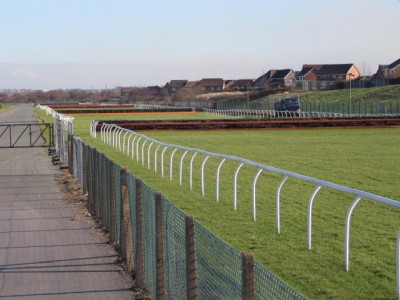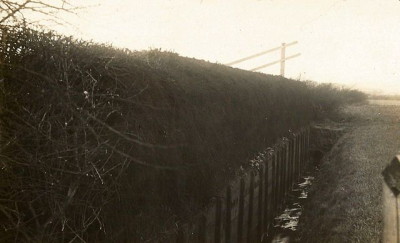The 1990 Grand National was a record-breaking Grand National, thanks to the winner’s time. The race was won by Mr Frisk, and thanks to some unusually firm ground, we saw a lightning-fast time. The winner came home in a time of eight minutes and 47 seconds, which broke the record time held by Red Rum since 1973, and it smashed the previous record by 14 seconds.
The ground on the day was described as firm, very fast for the time of year, as we have seen plenty of rain on Aintree in the past to make conditions heavy. Some horses were unsuited, but it did mean we saw plenty stay in the race, with conditions making it a little easier on those that weren’t confirmed to get the distance.
Mr Frisk won the race, with an SP of 16/1, trained by Kim Bailey and ridden by an amateur jockey, Mr Marcus Armytage.
Results
Non Finishers
What Happened In The 1990 Grand National?

The race had a very lively betting heat, with plenty of fancied runners towards the head of the market. They all did well, too, this certainly wasn’t a race for the bookmakers. 16/1 shot Mr Frisk was the winner, with the placed horses behind having SP’s of 9/1, 13/1 and 7/1.
The race certainly didn’t feel as competitive as the betting heat, though, with big intervals separating the first few home. Mr Frisk won by three-quarters of a length, with Durham Edition in second place. There were 20 lengths back to third, which was Rinus and then a further 12 lengths back to Brown Windsor, who finished fourth.
Good on firm ground, Mr Frisk was fancied by quite a few people and was a solid each-way selection with punters. He was ridden by an amateur rider, Marcus Armytage, who was a correspondent for the Racing Post newspaper but also rode horses from time to time. Despite his amateur status, Armytage had ridden in the Grand National previously, in 1987, on Brown Veil.
Put in a good position towards the head of the field from the start, Mr Frisk was always catching the eye, going well, jumping great and looking as though he had a strong chance of winning. He was 15 lengths clear of the chasing pack alongside the other leader Uncle Merlin when the pair reached Becher’s Brook on the second circuit.
This left Mr Frisk well clear and in a great position to win the race. His lead began to fade away as the others gained ground while Armytage gave his mount a breather. Over the last, he was still in the lead, and just one horse behind him was making an impression, this was Durham Edition. He came strongly and looked to have a really good chance of getting on top, but Armytage and Mr Frisk dug deep, keeping ahead and holding onto first place as they crossed the line.
The official winning distance of the race was recorded as three-quarters of a length. Durham Edition pushed hard, but Armytage was able to keep his mount going and keep the second-placed runner at bay.
When discussing the race afterwards, Armytage said he was convinced that Uncle Merlin was going much better than he was when that horse came down, and would have won the race, had he stayed in contention. Connections believed that, too, though when the horse returned in 1991, he was unable to come back and win.
As for Mr Frisk, he too would return in 1991 for a second shot at the Grand National, partnered again by Marcus Armytage. However, the pair would struggle in the race, with the horse eventually being pulled up at fence 22.
Unusually Quick Ground
The Grand National is always run in the spring, so we can get a variety of different conditions. Heavy ground has been seen a few times because we’ve had unseasonably wet spring seasons, but usually soft, or good to soft, is the ground we are used to seeing.
Here though, we had something very different. A warm, dry month in the build-up to the race left the ground as officially firm. This posed a very different challenge, some horses were proven on firm, including Mr Frisk, while some didn’t like it, but what this definitely did, was keep finisher numbers high as 20 horses managed to complete the course.
The ground didn’t have the same effect on the race that heavy ground conditions would, but it certainly helped some of the runners, compared to others who didn’t like it.
Changes To Course Safety

The Grand National course is one of the toughest and most unforgiving in racing. But around the time of the 1990 Grand National, there was a lot of talk about how to make the race safer for those taking part. Some thought this would be the beginning of the end for the race, moving it from being a special, unique test to something that represents a regular long-distance handicap.
The first big changes were made to the course at this time, and they came at the Becher’s Brook fence. There was a ditch at the fence, which made the jump much tougher and taller, while the corner afterwards was also very sharp, causing many horses and riders to lose their balance.
Both of these were changed in 1990, after two horse fatalities at the fence 12 months earlier. There has been a lot of talk about the changes made to the National course over the years, and this was one of the first big changes to be made.
Record Breaking Time
Thanks to the firm ground that we have already mentioned, we saw a record broken in 1990, with a new course record time recorded by Mr Frisk. Of course, the weight carried by the winner, plus the ground on the day, determined the time, but take nothing away from this performance, which was very special, and saw horses at big intervals in behind, always the sign of an impressive win.
The winning time for the race was eight minutes and 47 seconds. The previous record holder was Red Rum, back in 1973, so a long-standing record, but one that got smashed on this day. The record was broken by 14 seconds, a new, longstanding record for the contest.
In 2013, the race distance was shortened and will almost certainly never be made any bigger than it is now. Therefore, we will never see a horse go around this distance quicker than Mr Frisk did that day, a race record that will stay in the record books forever.
Moments Of Note
- With a time of eight minutes and 47 seconds, Mr Frisk broke the record for the winning Grand National time, smashing the previously held record of Red Rum’s by a mightily impressive 14 seconds
- Very quick ground on the day was the main reason why Mr Frisk was able to complete in such a short time, the going was officially described as firm
- The winning jockey on the day was Marcus Armytage, an amateur rider who was actually a racing journalist with the Racing Post, adding a great, fun factor to the story of the winner.
